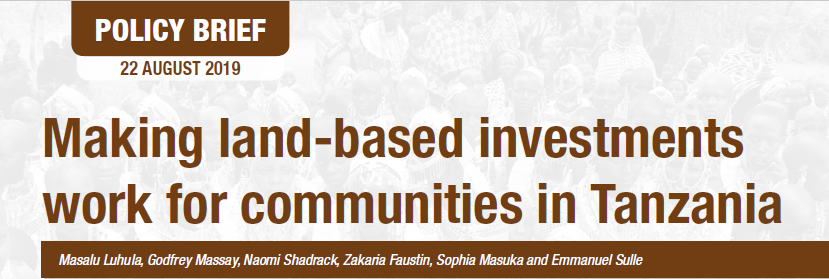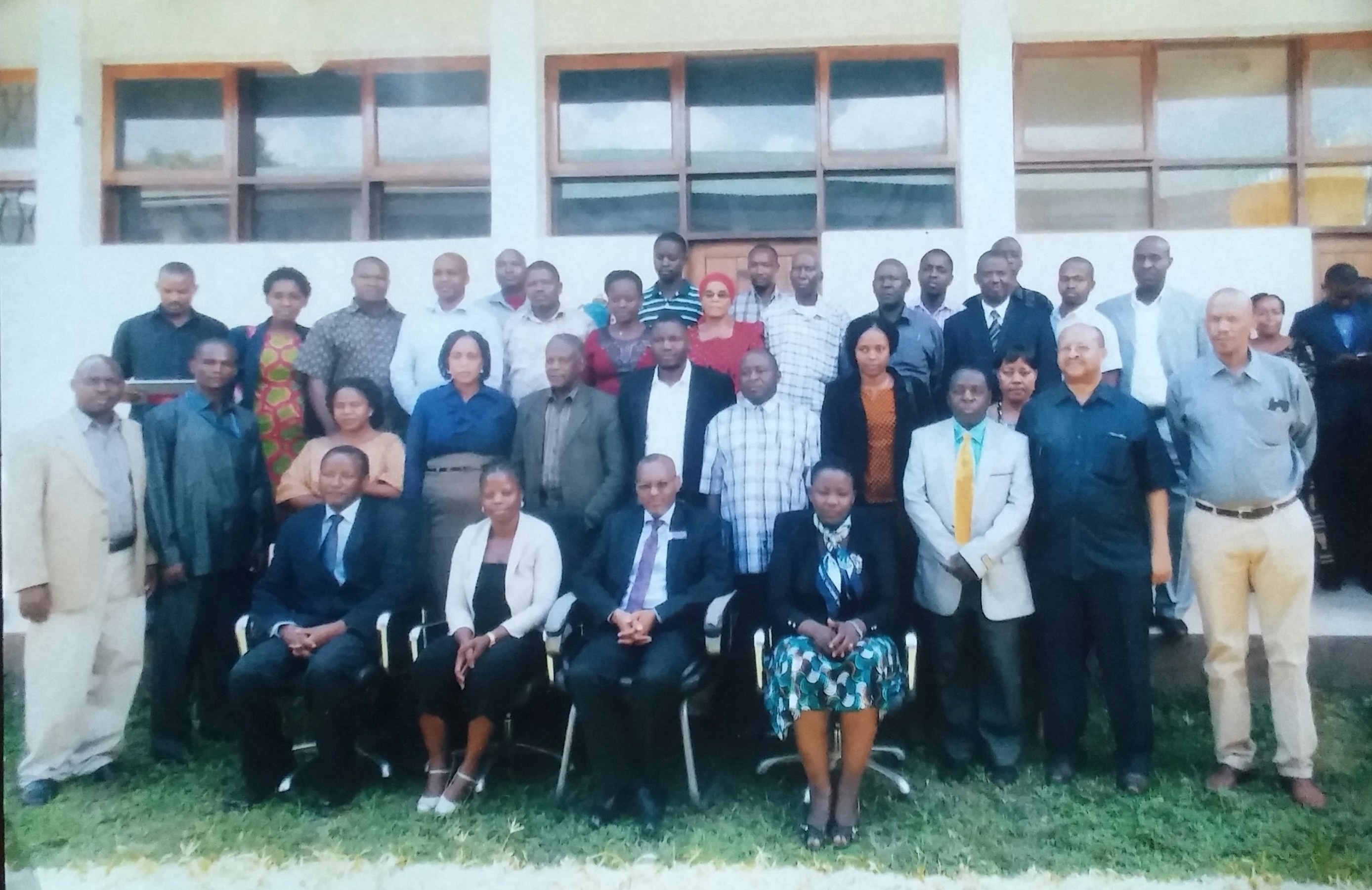LAND POLICY REVIEW STAKEHOLDERS CONSULTATION MEETING
In August 2015, the Ministry of Land, Housing and Human Settlement Development (MLHHSD) initiated a review on the Land policy, which had been in place for 21 years.
From August 2015 to November 2016, consultative meetings were organised at various levels within the Ministry whereby between April-May 2016 the drafting committee engaged various actors across 8 zones to get their opinions. This followed drafting the Land Policy 2016 between July-November 2016.
The stakeholders consultation meeting was held in Morogoro from 21st to 24th November 2016, which was attended by various groups. On 23rd November government institutions, local government authorities, non-governmental organisations (NGOs), CSOs, Faith based Organizations (FBOs), financial and higher level and institutions discussed and provided recommendations on the draft land policy. The Permanent Secretary for the MLHHSD, Dr. Yamungu Kayandabila, officially opened the meeting. In his opening remarks he stressed that Land shall benefit all ordinary citizens of Tanzania.
In this meeting the Land Policy drafting team presented on the draft land policy which was discussed by the stakeholders. The participants outlined new areas with reference to hunter-gatherers, pastoralism, mining rights and foreign investors rights to land ownership among others. The participants also waived various recommendations.
Participants acknowledged the improvements done in the draft Land Policy. These included the following;
- The Land policy draft recognizes hunter gatherers and pledge to set aside land for hunter gatherers – as special interests groups and legitimate land users – pages [11, 36, 52 (4.21.3) of the draft land policy
- The Land policy document recognizes pastoralism and pledges to set aside land for pastoralists – as legitimate land users – on pages [6,40,4.3.2 (iii], 52 of the draft land policy
- The draft policy document proposes extension of Mining rights to include rightful owners of land with mines – pages [55, 4.25.1, 4.25.2, 4.25.3 (i), (ii)]
- The policy document proposes that land holders occupying unregistered land shall be deemed to have titles and seek registration of the same- pages [38,4.1.3 (x)
- The policy document proposes to promote land long-term benefit sharing arrangement - land based investment – pages [40, 4.4.3 (iv)
- The policy document proposes that non-citizens and foreign companies are not allowed to acquire village land through allocation, transmission and purchase or lease- pages [39, 4.2.3 (v)
- The document proposes to secure national mobility corridors and ensure security of land rights for pastoralists across village boundaries- pages [40,4.3.3 (iii)
- The draft policy reduces term for Certificate of occupancy (CRO) limit 33 for investors (page 41,4.4.3 (iii)
However, the participants came up with the following major recommendations:
- The policy document proposes a new definition that reserved areas- include Game Controlled Areas. This is a very dangerous proposition and CSOs must push to have the reserved land redefined or have game controlled area removed from the reserved lands (Pages [31, 2.23-, 53,4.23.1)
- The land policy document proposes Commissioner of Land to be the SOLE authority to administer ALL Categories of Lands –pages [39, 4.1.3 (ii). The power of village land should be vested to villagers through general assembly and village council. The (ii) and (iv) statements are contracting each other when it comes to the powers of the Commissioner and Village Councils in administration of the village land. It is recommended that Commissioner should only remain with advisory role to the Village Council on administration of village land that the Village council and village assembly should be the sole authorities responsible in administration of village land. The Commissioner authority should be limited to general and reserved land only.
- The land policy document contains a proposal to reduce powers of village council and that of general assembly in administration of village land- page Pages [38, 4.1.3 (vi). This is very ambiguous and problematic – there is a need to inquire for a better understanding – otherwise, powers of village councils and that village general assembly should continue un interfered – remain supreme organs of village lands same way as contained under the village land Act No.5 1999.
- Certificate of Rights of Occupancy (CRO) to be given to Foreigners whose projects intend to build houses for immediate sale- out right sale – (page 41, 4.4.3 (v). It contradicts with concept no foreigner should own land.
- The policy document proposes land rent/tax on village lands- pages [44,4.9.3 (i) (ii). This should be specific to general land and not applicable on village land
- The land policy documents contains a proposal directing the land officers from the office of Commissioner of land to be employed at village level to assist the village councils in administrating land matters – Ensure availability of adequate and qualified land sector professionals at district and lower levels. Pages [39,4.1.3 (v). this is interference of roles of commissioners versus village council and its institutions.
- Rural areas lands of economically underutilized Pages [30, 2.21. it was recommended that there is a need to discuss this to remove the bad perceptions which have always existing – that good use of land is only through practicing agriculture, quite often lands for pastoralists and hunter gatherers is termed as not properly used or no good use.
- Community Lands- some practices (pastoralists and hunter and gathering require traditional institutions to administer and protect pastoral lands – land is commonly used for ALL- individual rights are excluded under this proposal-
- Create mechanism to allow traditional institutions to be allowed to officially mediate and resolved conflicts – more effective
- Inquire more on what it entails -Transformation of village, ward and District Land and Housing
- Public Interests and Public Purpose – need to be defined


